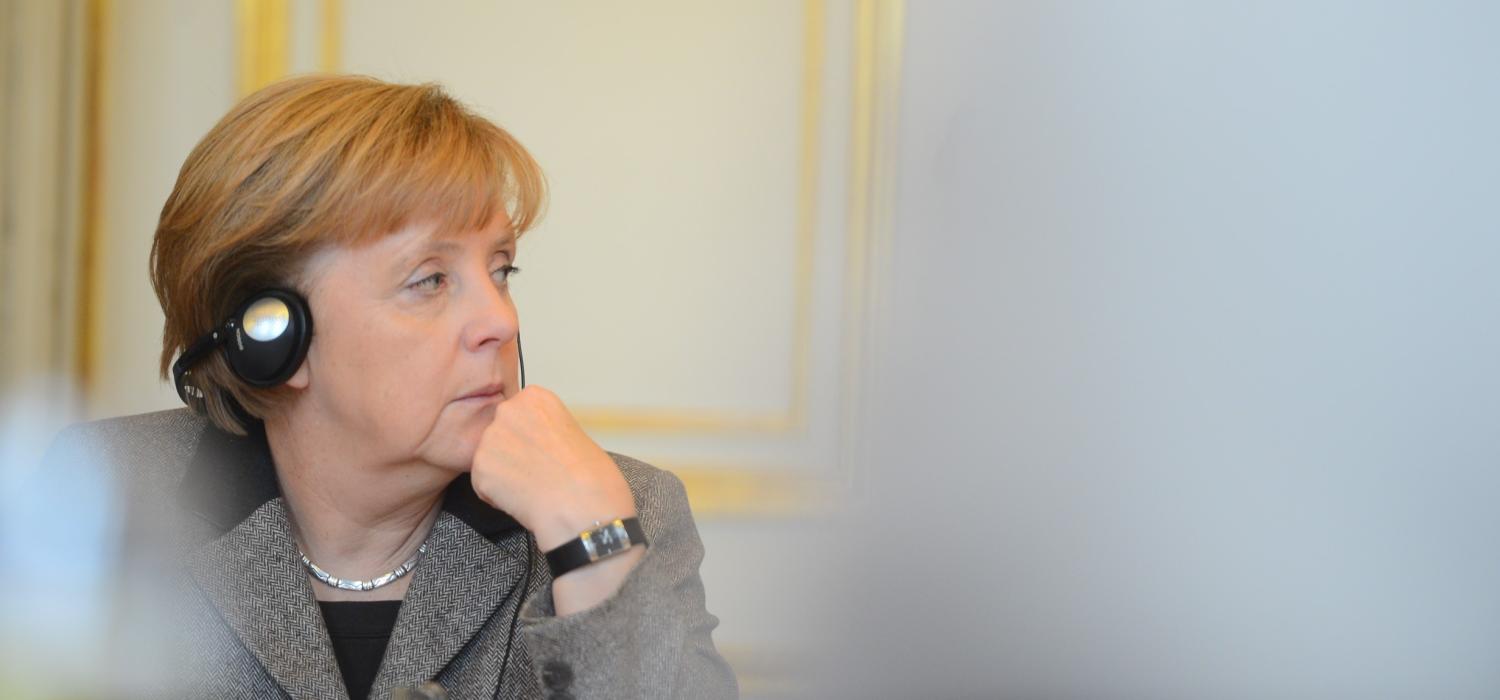'One has to face up to the fact that the other members of the EU have been slagged off fairly royally, and they're the people who you would be negotiating with.' That was the assessment two weeks ago of Lord Jonathan Hill, who on Saturday resigned as Britain's European Commissioner.
First among those other members is undoubtedly Germany, which on Saturday hosted a meeting of the EU's 'founding six' as an initial attempt at cobbling together a response to Brexit. Angela Merkel's reaction to the result on Friday also captured the sense that leadership through this latest European crisis has again defaulted to her country. Likewise, the public zeitgeist here has evolved from pre-referendum entreaties for the British people to stay — to the point of conceding the UK's winning goal in the 1966 World Cup — to grim resignation on managing the mess that they've created for the rest of Europe.
Attitudes towards the UK's role in European integration tend to fall along party-political lines in Germany, reflected in Merkel's more conciliatory tone compared to that of her foreign minister and vice-chancellor. However there is broad consensus that 'ever closer union' promotes the interests of Europe in general and Germany in particular, making containment of damage to the EU the overarching priority. While Merkel's Administration has been maneuvering to leave London an escape hatch, it has also ruled out any bargaining around a decision to invoke Article 50, and in particular any concessions for the sake of keeping the UK in.
Monday's joint statement with France and Italy confirmed Germany's agreement with the EU's other power players on the bottom-line that 'out means out'. [fold]
Big business is not enthused by the prospect of barriers (whether tariffs or regulations) going up around Germany's most profitable export market, and the DAX fell harder than the FTSE100 on Friday. But in industries where London's dominance crowds out German competitors, and where firms' choice to locate there is influenced by Britain's access to the single market and skilled workers from the continent, German players are already sniffing opportunity. One lobby group has arranged a hotline and travelling roadshow to promote Frankfurt as an alternative hub for financial services. Likewise, within hours of the referendum result a venture capitalist group was talking up the potential for Berlin to displace London as the centre of Europe's technology start-up scene.
Defence firms operating from London are also likely to be considering the need for a cross-Channel move to better service a growing continental arms market. Such a trend could play into the push for a 'European defence union', which was again raised by Germany's defence minister during a weekend interview about Brexit's consequences. This project was already on the agenda for this week's EU summit, with the German head of the EU Parliament's foreign affairs committee having labelled Britain an obstacle to its progress. An EU security strategy that is expected to be published this week, and a German defence white paper allegedly pushed back for a post-Brexit release, will both reportedly promote defence integration in parallel with the NATO framework.
The departure from the EU of its second largest economy will inevitably amplify the largest economy's role in Europe's engagement with the wider world. On Friday, Merkel was the only European leader other than David Cameron to receive a call from Barrack Obama to discuss the referendum's outcome. US decision makers already seem to be following the president's lead; as tweeted by one of Hillary Clinton's advisers, it is 'undeniable now that US ties to Germany will be key on EU issues.' And Brexit feeds into an emerging debate on the need for a coordinated European response to China's expanding investment footprint, and the growing antagonisms around Beijing's foreign policy. The EU just last week adopted a new strategy towards China, a key element of which is the use of trade defence instruments, long stymied by British opposition.
The warning by the EU Parliament's president that a whole continent must not be taken hostage by the UK dithering over implementing its' people's will reflected not just the EU's institutional imperative, but his home country's general sentiment. It is hard to find disagreement in Germany with the chancellor's view that the UK's decision represents a 'watershed for Europe'. And the fact that Merkel hosted the leaders of France and Italy as well as the EU president for talks ahead of Tuesday's pan-EU summit suggests that the other key actors — including Washington — are looking to Berlin for a sense of direction, particularly as at present this looks like it won't be coming from London.
Photo courtesy of Flickr user European People's Party.
Save

